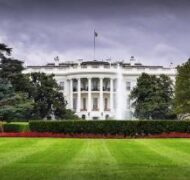Seeking Understanding on Our Political Responsibilities
Blog / Produced by The High Calling
“I don’t get it. So are you for more government, or for less government?” So goes my absolute favorite response after I’ve made a presentation to a Christian audience. It is a response I hear often.
I lead an organization called the Center for Public Justice. We’re what folks “inside the Beltway” of Washington, DC refer to as a think tank. Our mission is focused on civic education and public policy development from a perspective that is distinctively Christian. We focus on upholding a just political order for all people and institutions, including those who do not share our commitment to the Christian faith.
This mission brings together men and women who find their political homes across the spectrum of political parties. Even our board of directors is made up of a third Republicans, a third Democrats, and a third independents and folks who consider themselves to be politically homeless.
Our work is to educate ordinary faithful citizens, as well as policymakers and legislators, at the local and national levels about their political responsibilities in light of the Christian faith.
I am the first to admit that as Christians, we have at times not always lived up to those political responsibilities very well.
Part of the work we do in supporting the work of ministry leaders is to create conversations where we can acknowledge the difficult moments of our past that often define us by default when we say we are Christian and political. During my youth and young adulthood these failures were writ large in terms of agenda and tone, and exemplified by high-profile Christian leaders presuming to speak for God in often heterodox ways, frequently from a party platform.
A substantial part of our work today is not only to own up to the past, but to support a new generation of Christian leaders who seem to have overcorrected for these excesses.
Many today still dress up party platforms with a bit of scripture. But more dangerously, many have abandoned the political enterprise altogether. For some this abdication of responsibilities is based on poor biblical interpretation (Jesus wasn’t involved with the State, why should I be). For others, legitimate frustration with government gridlock and uncivil discourse has led them to embrace libertarianism, which at the very least privatizes faith to be a matter of individual piety, and at its most extreme, reduces all morality to upholding contracts between autonomous individuals. This philosophy is one that can be best described as wholly incompatible with the Gospel.
As an alternative, we’ve articulated many of our beliefs in a series of Guidelines for Government and Citizenship, which help lay the foundation for how we begin to think about whose responsibility is what, when it comes to the political order.
We believe that God created humans with the capacity to develop government in conformity to public justice, such that the government of a political community bears responsibility to legislate, enforce, and adjudicate public laws for the safety, welfare, and public order of everyone within its jurisdiction.
Governments may never act as if their authority is limitless, because humans also have a wide variety of God-given, non-political responsibilities. The proper exercise of governmental authority in the political community, therefore, must include the legal recognition and impartial protection of human rights and responsibilities, both individual and institutional, that belong to the people and not to government.
So for example, that question about the size of government is my favorite entry point into a discussion that requires nuance. “Both,” I say. “See, it really depends … .” The most recent conversation I had included a wide-ranging discussion about the need for better legal protections for religious freedom in some specific pieces of legislation, which would require “more” government if one were to measure it that way.
Whether its articulated in our weekly Capital Commentary or daily Shared Justice journals, or explained at length in a policy whitepaper or public lecture, we work to produce materials for equipping Christians to take seriously their political responsibilities unto the Lord as members of a shared political community. I am convinced that what God requires of us, in addition to our adoption of humility, forbearance, and a willingness to recognize the imago Dei in every member of our political community, is a faithful commitment to not give up on the pursuit of the good that God intends for politics in our day.






